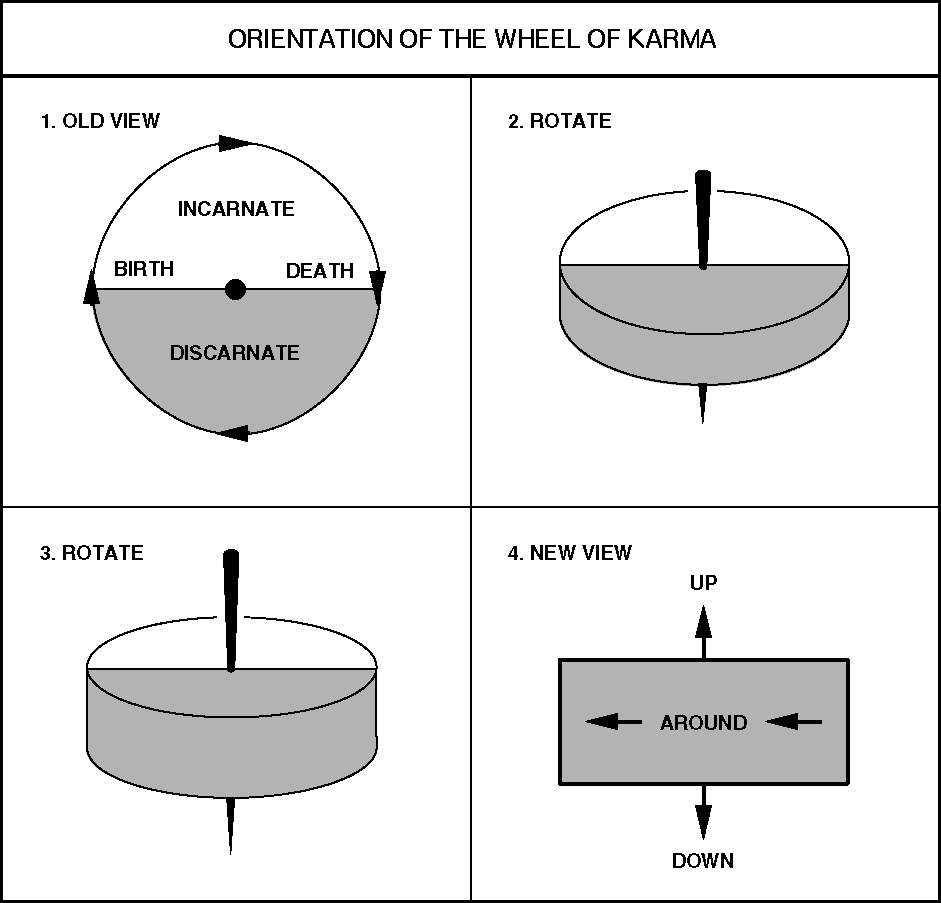
In April, 1968, I was asked to give a talk to the Ministerial Alliance of Ponca City, Oklahoma. The night before the meeting, I prayed for guidance but didn't receive any, so--remembering that the Lord doesn't do our homework for us--I sat down and drafted up the bones of an after-dinner speech.
Next day, during the luncheon, I found myself looking at those ministers. I knew several of them fairly well--they really cared for their people. They were ministers in fact as well as in name. I felt a bit sorry because I had very little to offer them that might help in their ministry. Then, when I stood up to speak, the words that came out of my mouth were as much a surprise to me as they were to anyone else:
Good afternoon. I'm pleased that I was invited to address this meeting of the Corpus Christi Cattlemen's Association.
They looked blank for a moment. Then I saw laughter begin to crinkle the corners of several people's eyes as they recognized the English meaning of Corpus Christi.
Well ... we're all interested in the care and feeding of sheep, and little lambs, and kids, and old goats, and workhorses, nags, and bull-headed parishioners. I'd like to talk about fodder.
From this point I received each thought just before I spoke it: I merely relayed the words. The message was an extended analogy on the care and feeding of human beings. When it was done, the ministers seemed to be in a reverie, each looking off into his own private distance. However, after a moment, one of them stirred, looked up at me, and asked, "Ben, what do you think about reincarnation?"
I was a bit surprised, partly because the question seemed rather off the subject, and partly because I didn't expect to hear that question from a clergyman in a room full of clergymen. I thought I had an answer, but the talk on fodder was so far above my own best efforts that I just relayed the question back up the channel: "Well, what do we think?" The answer came back through full control of my voice:
Reincarnation is available, but it is no longer necessary, and it never was desirable. Those who return have laid up their treasure on earth. After they die, they are tormented by earthly desires they cannot fulfill and will not lay aside, so they are not happy in heaven.
The loving Father allows His children to return, but that is not what He prefers for them. It is a result of their own addiction to earth. Every time they are born again, they must die again, and if they do not learn, the cycle repeats. Therefore, reincarnation should be seen in contrast to eternal life.
Jesus taught men to lay up their treasure in heaven, and to let go of earth-binding desires. He demonstrated life after death with his own body, so they could know that men go to their treasures. Thus he accomplished, for himself and those who follow him, what Buddha recommended: he broke the wheel, and set men free.

1. Ancient peoples who knew about the cycle of life thought of it as standing on edge, like the wheel of a cart. They knew childhood is a time of improvement and old age is a time of decline. Young adulthood represented the highest good they knew, so they put it at the top of the Wheel. And the realm between death and rebirth was (and is) experienced by many seers as a dim gray twilight.
2. Once, while meditating on the significance of the Wheel of Karma, I saw the top of the Wheel begin to tip or rotate away from me--and not of my doing.
3. As I watched, fascinated, the top continued to rotate away from me.
4. Finally, it lay flat--like a millstone--with the axle pointing up and down, and a thought popped into my mind: Think of it this way. This is how it works.

From this perspective, there are three ways a soul can go: up, around, or down.